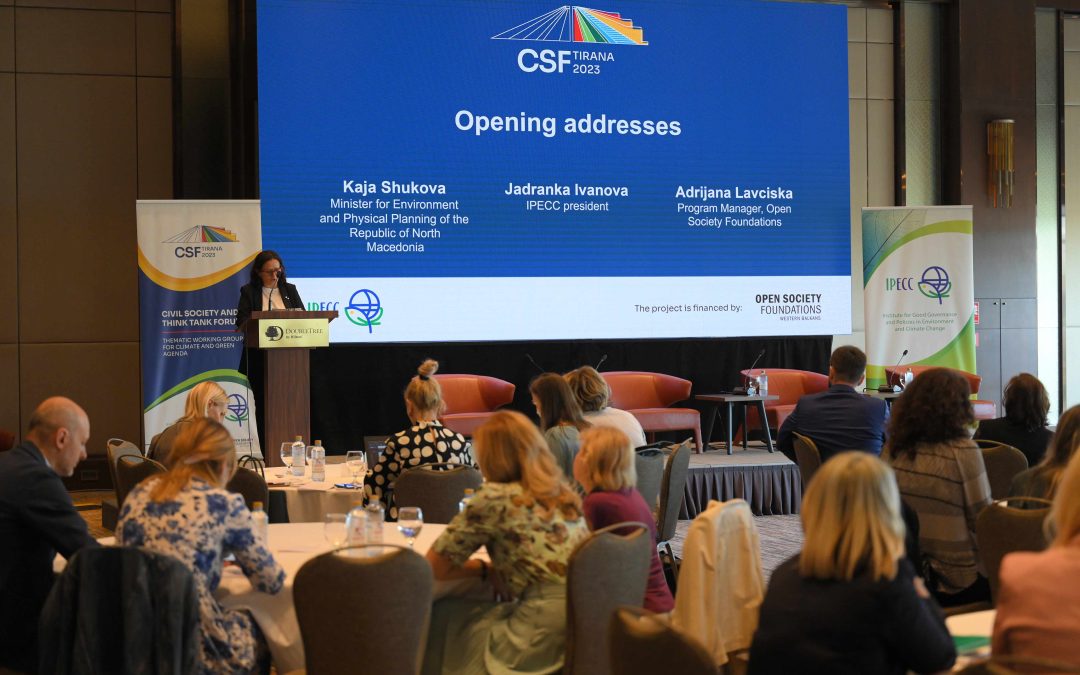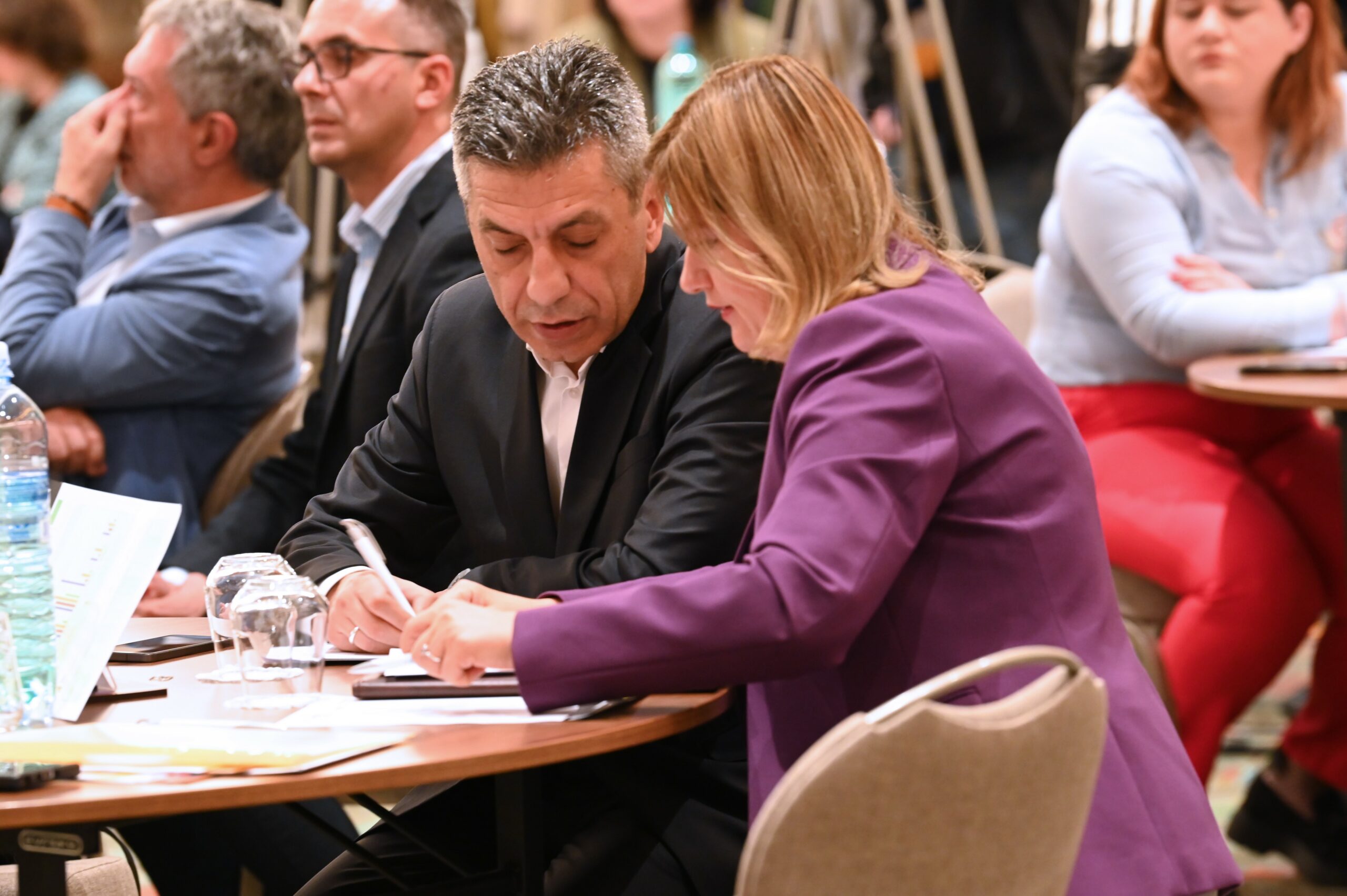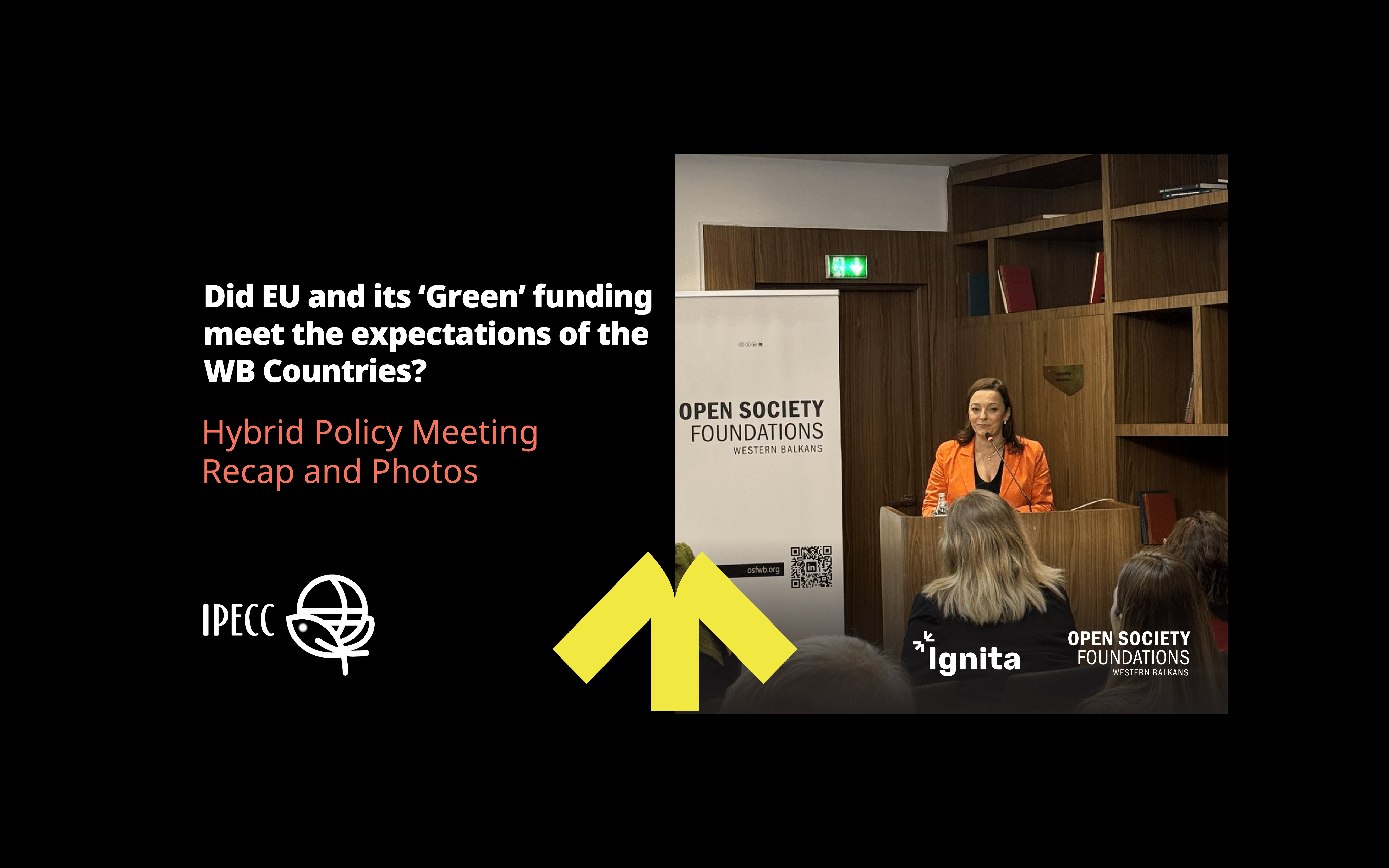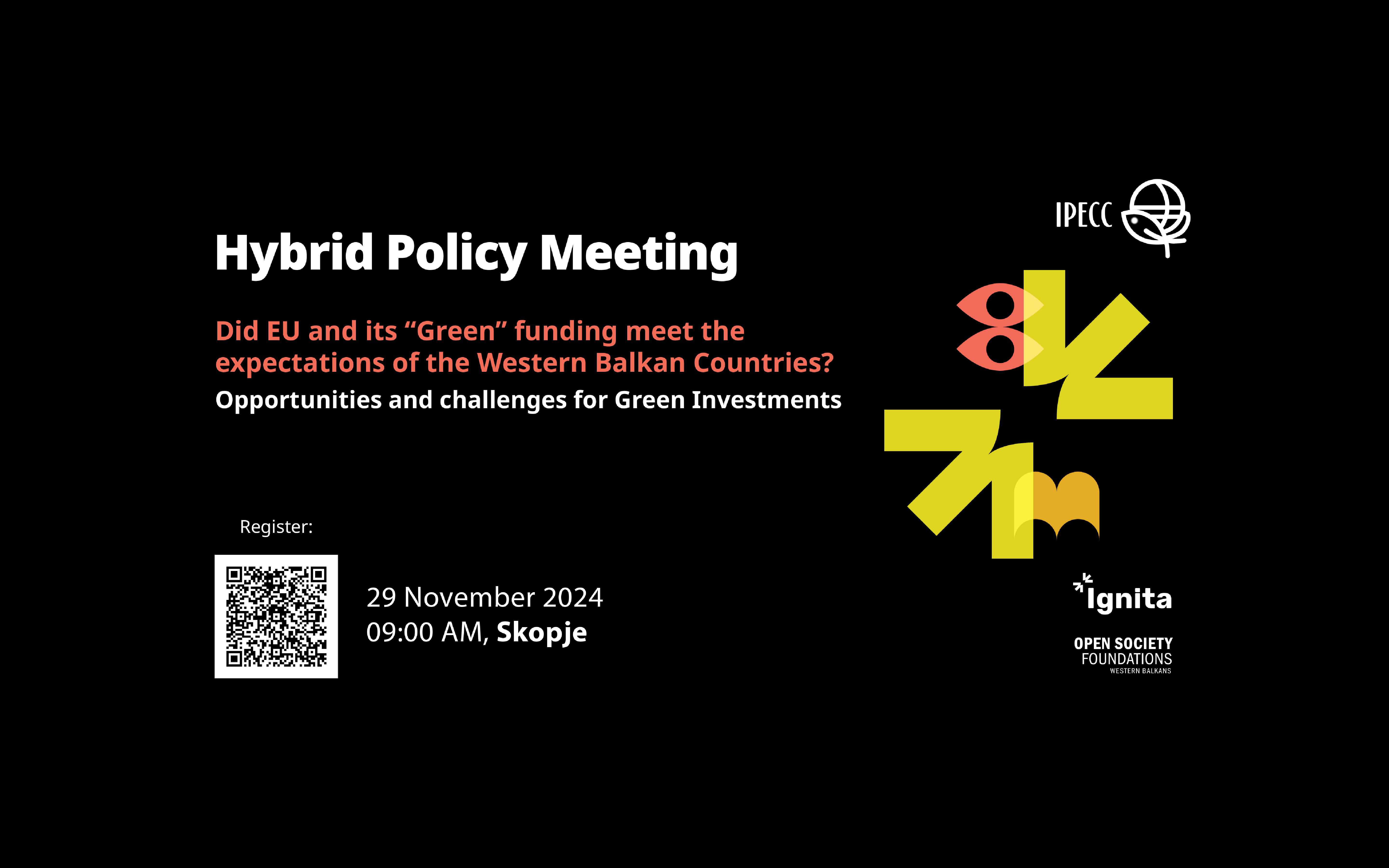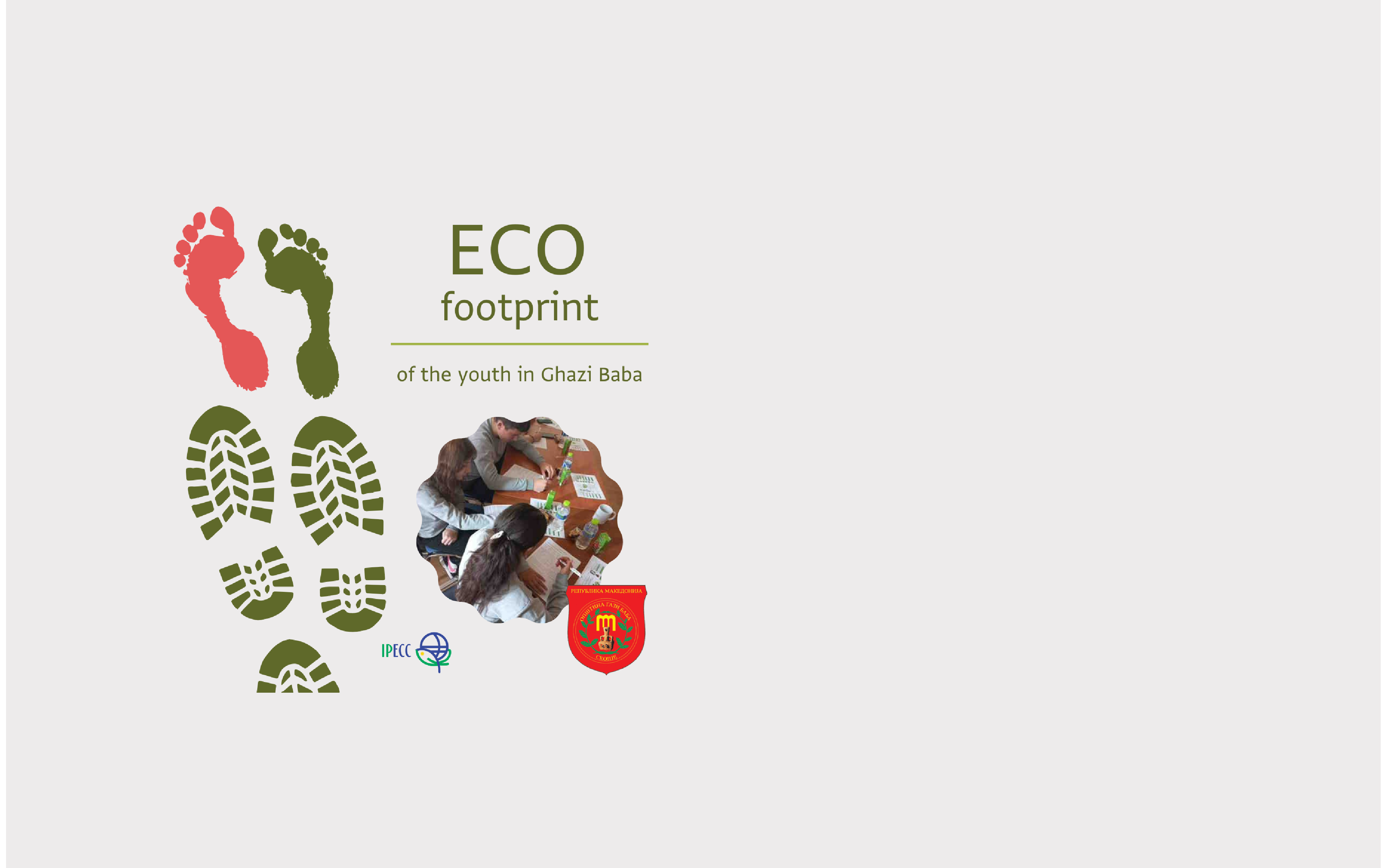In the efforts to accelerate the process towards greener economies and implement the Green Agenda, and most importantly to incite the EU integration process of Western Balkans, the Thematic work group “Climate and Green Agenda”, led by the Institute for good governance and policies in environment and climate change – Skopje (IPECC), and in cooperation with the Ministry of Environment and Spatial Planning (MoEPP) on 26 September 2023 organized the international public event “Climate and Green Agenda” as a part of the recommendation preparation process of the Civil Society Forum (CSF) for the Berlin Process Summit in 2023.
At the event, organized as a platform for dialogue between government representatives, the private sector, the EU and international organizations, as well as civil society organizations from the countries of the Western Balkans, three key topics were discussed: “Green infrastructure investments”, “Good Governance in Environment” and “Biodiversity and Protection of Natural Resources”.
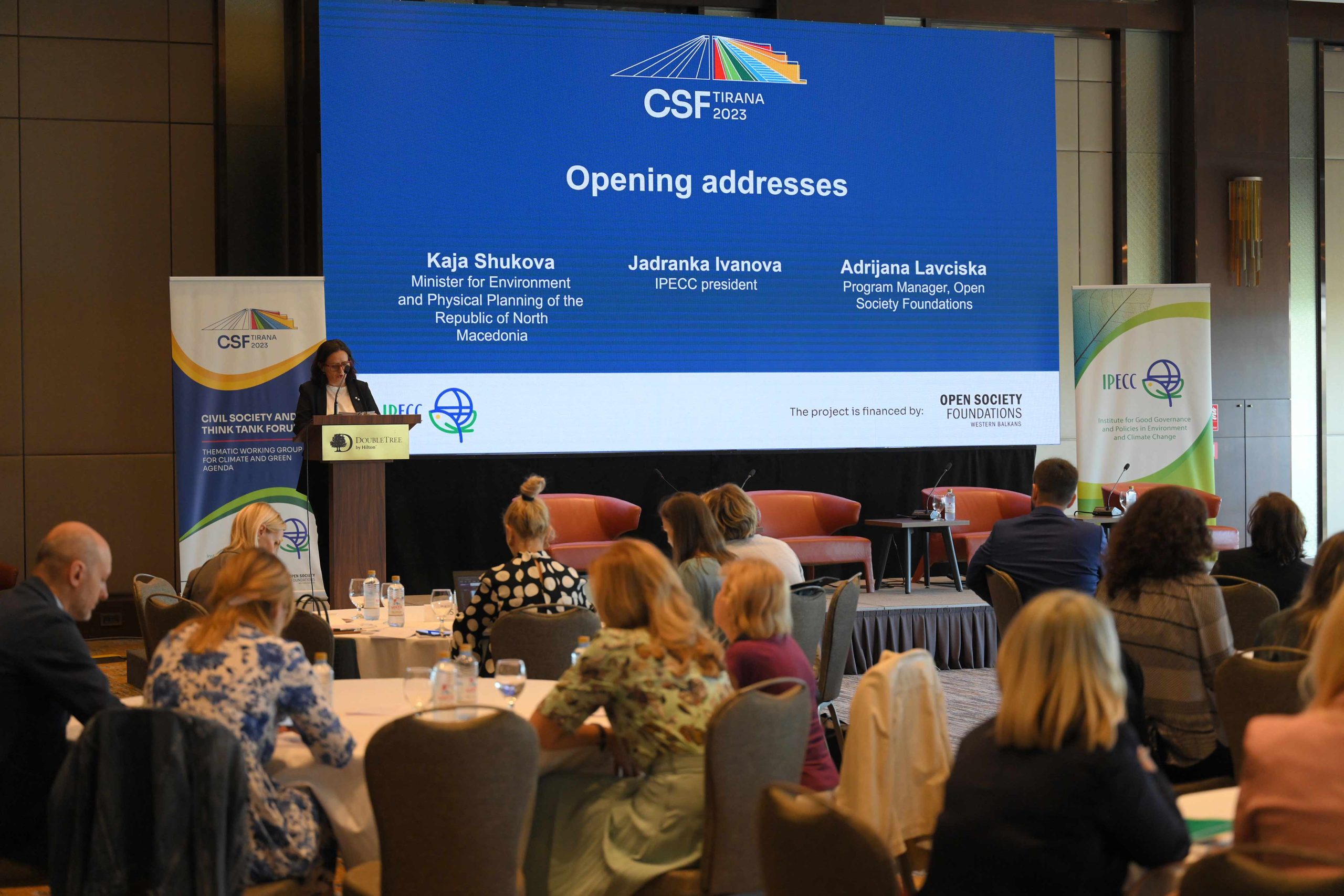
The event was attended by the Minister of Environment and Spatial Planning, Kaja Shukova, Stefan Hudolin, Head of Operations Sector from the EU Delegation, Almira Xhembula, Deputy Minister of Tourism and Environment of the Republic of Albania, as well as numerous international experts and representatives from public institutions, as well as civil society organizations from the Western Balkan countries.
The Minister of Environment and Spatial Planning, Kaja Shukova, in her opening address welcomed the efforts and cooperation with the civil sector in all processes that contribute to bringing North Macedonia closer to the European family, as well as deepening regional cooperation in the fields of the environment and climate.
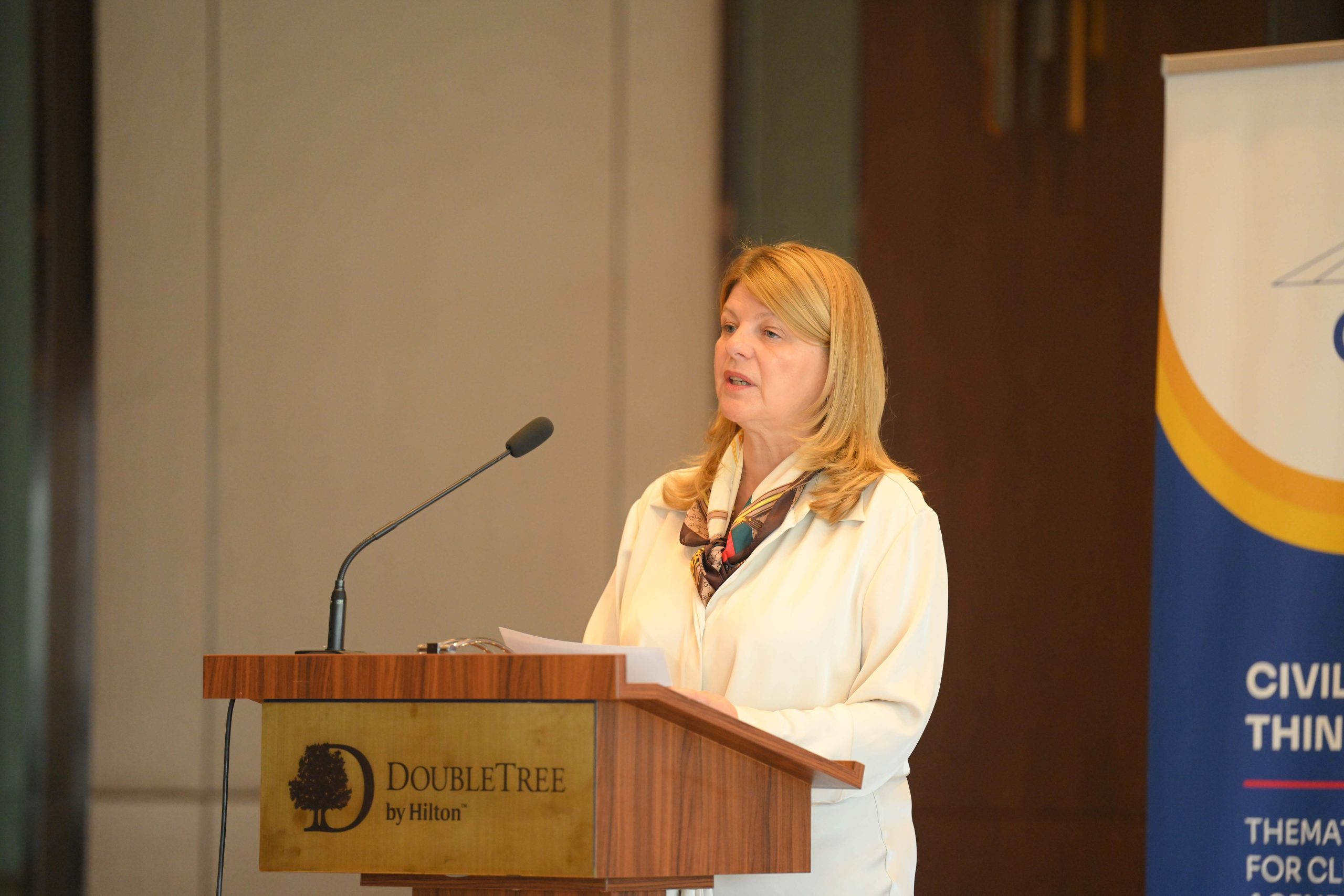
She emphasized that the Ministry invests significant efforts in the accession process, through the effective transposition of the relevant EU directives into our legislation, accompanied by the planning and implementation of measures and activities aligned with the objectives of the EU Green Agenda for the Western Balkans.
„On this path, we face a series of challenges that are characteristic of other Western Balkan countries as well. The financial resources at our disposal to bridge the significant financial gap related to green infrastructure are limited. Administrative capacities, both on national and local level still have not reached the level to have effective absorption of the available funds. This dual challenge is complex that requires actions from all stakeholders and are well-documented in the annual reports of the European Commission, and the associated recommendations have always served as concrete guidelines for the necessary reforms“ stressed Minister Shukova.
Steffen Hudolin emphasized that there were and will be challenges, but, as he said, “we must turn them into opportunities that include investments in green technologies and infrastructure.”
.
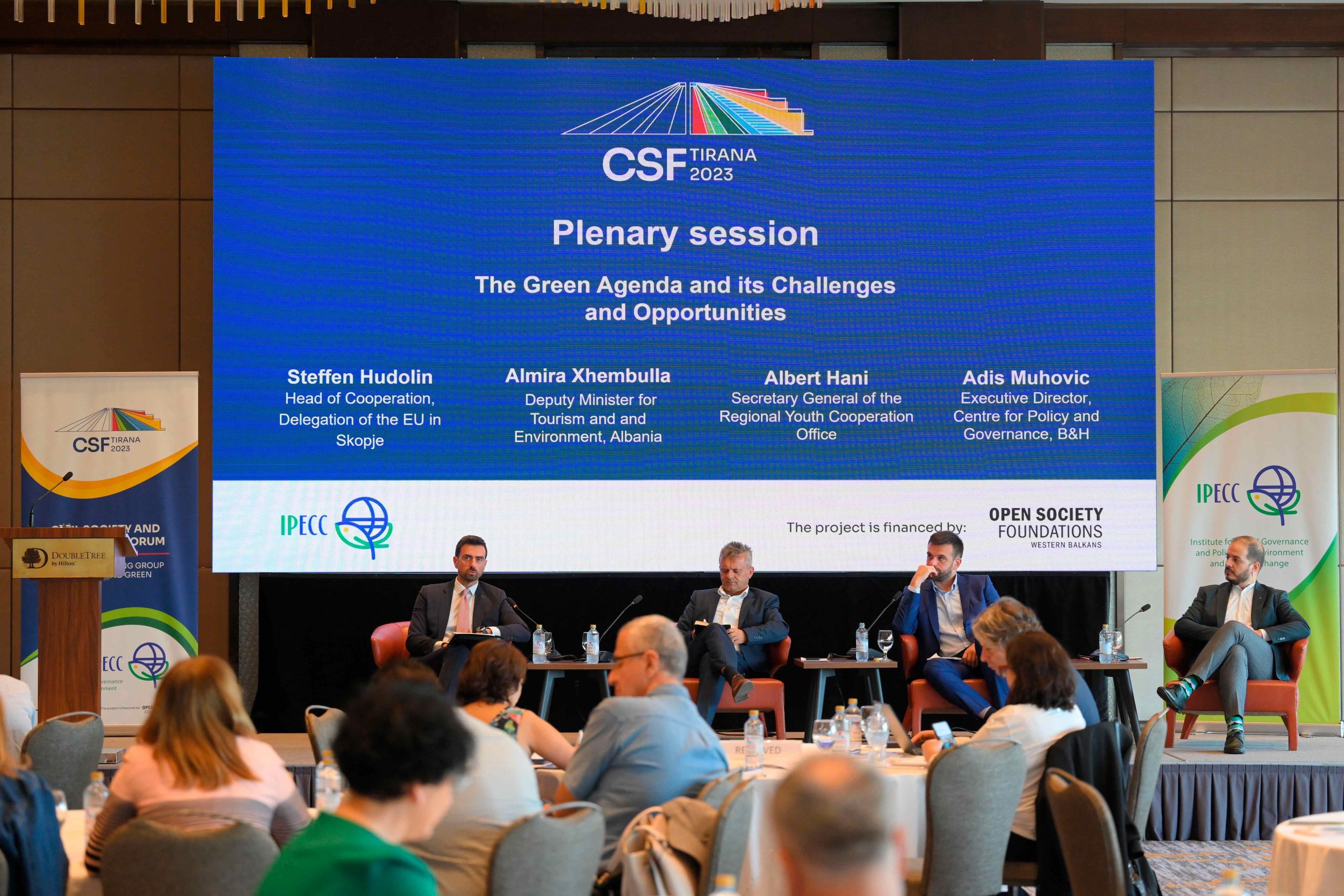
“Governments have a key role to set the legal framework and introduce policies that will intensify this process,” Hudolin emphasized, adding that national budgets must set aside a portion for biodiversity protection.
Participants pointed out a number of issues that still pose a challenge to the implementation and compliance with the requirements of the EU legislation on Chapter 27 and the implementation of the “Green Agenda”, especially in providing the necessary green infrastructure.
Most significant is the difference between required and available financial resources, primarily channeled through the Instrument for Pre-Accession Assistance (IPA). An additional challenge is the fact that even the available funds are not fully utilized due to inadequate administrative capacity at the national and local levels. Loans remain the dominant external financing instrument for investments in all Western Balkan countries, which represents an economic pressure that does not stimulate investments in green infrastructure. As a solution to this problem is seen in the possibility of allocating EU funds based on solidarity, through a fund that will be managed in a similar way as the European Structural Funds, including all levels of authorities and stakeholders.
The inefficient use of financial resources in the environment due to the limitations of administrative capacities in all countries of the Western Balkans is closely related to good governance. Institutional competence is needed, as well as strong and dedicated administrative capacities for the implementation of complex EU acquis on the environment and climate change, both at the national and local level. The participants believe that a comprehensive approach of capacity building, fund management and strategic policies for staff retention in the administration will confirm the commitment of the countries of the Western Balkans to good governance and the fulfillment of EU environmental and climate requirements.

To achieve climate neutrality, the Western Balkans countries must invest in biodiversity and the protection of natural resources. And that means aligning their policies with the EU’s 2030 Biodiversity Strategy, creating a network of well-managed protected areas, and protecting at least 30% of the land and 30% of the marine area. At the same time, the participants propose that the EU establish a mechanism by which at least 30% of climate-related funding will be channeled into solutions for the protection of biodiversity and nature.
It is equally important that these processes depend on the active involvement of the private and banking sectors. The EU and the Western Balkans countries should provide sufficient financial and administrative support to the private sector in the region and encourage it to make continuous efforts towards a blue and green/circular economy. Waste management, recycling, sustainable production and efficient use of resources, as well as financial services of the commercial banking system in the countries of the Western Balkans should comply with EU environmental requirements.
This event is part of the activities of the Thematic working group “Climate and Green Agenda” for the preparation of recommendations on the climate and the green agenda, which will be presented to the leaders of the EU member states and the Western Balkans at this year’s final Summit of the Berlin Process, which will be held in October, in Tirana.
The “2023 Civil Society and Think Tank Forum” is organized by the Open Society Foundations – Western Balkans, with a mandate from the Government of Albania as the current chairman of the Berlin Process, and in partnership with the Greek Foundation for European and Foreign Policy (ELIAMEP) and The Cooperation and Development Institute (CDI).

